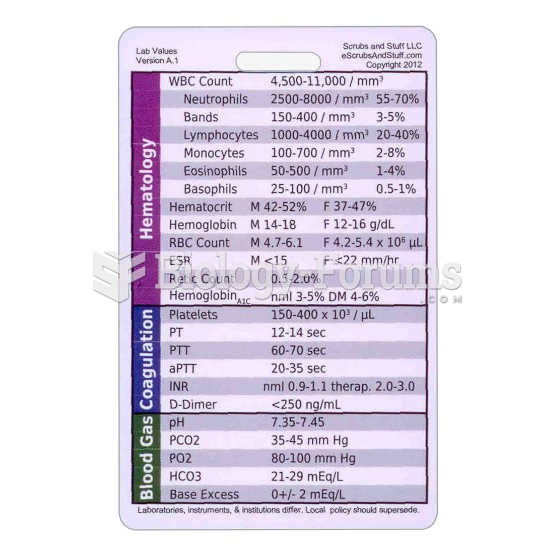|
|
|
Patients who cannot swallow may receive nutrition via a parenteral route—usually, a catheter is inserted through the chest into a large vein going into the heart.
There can actually be a 25-hour time difference between certain locations in the world. The International Date Line passes between the islands of Samoa and American Samoa. It is not a straight line, but "zig-zags" around various island chains. Therefore, Samoa and nearby islands have one date, while American Samoa and nearby islands are one day behind. Daylight saving time is used in some islands, but not in others—further shifting the hours out of sync with natural time.
The first oral chemotherapy drug for colon cancer was approved by FDA in 2001.
In the United States, an estimated 50 million unnecessary antibiotics are prescribed for viral respiratory infections.
Pubic lice (crabs) are usually spread through sexual contact. You cannot catch them by using a public toilet.







